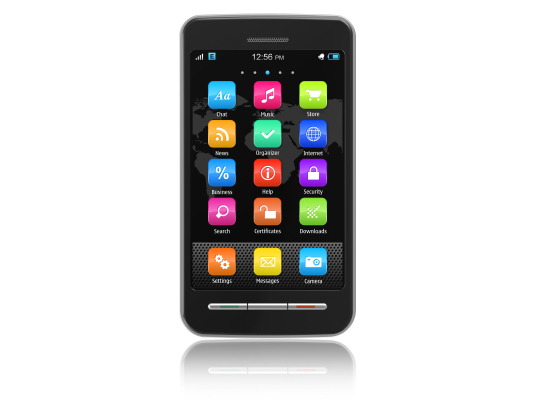7 reasons the web is the next app platform
Leon Brown reveals why web based apps are more attractive than native apps for developers and businesses.
A recent article on Creative Bloq discussed why designers should say no to native apps, which made several good points, but missed out on several emerging trends that make web based apps more attractive than native apps for developers and businesses involved in developing apps.
This article looks at identifying some additional thoughts on how the web may become the standard platform for future apps.
01. Native in Disguise
Web apps can be made to appear and act exactly the same as a native app – they can be installed for offline use from a web page to have their own home screen icon, offline accessibility and to open in full screen without any of the browser UI – this was the original option for apps provided by Apple with the first iPhone.
02. Business Sense
The real motivation is likely to come from businesses who start to realise that developing native apps doesn't make commercial business sense when they have to invest both time and money to support multiple hardware and OS configurations – especially when new platforms types such as smart TV, wearables and Internet of Things are emerging to demand that apps have an even wider range of compatibility requirements. Web apps allow you to develop once and run everywhere to save time and money.

03. Speed
The argument of native apps running faster and smoother when developed using native code is rapidly becoming a redundant argument as browsers become more optimised, hardware becomes faster, developers learn how to better optimise code and tools such as Asm.js being creating to further optimise code. Add to this the upcoming WebAssembly standard, allowing apps to be compiled in the same way as native apps and distributed via the web to run in web browsers – this additional option will open opportunities for existing native code to be compiled for web distribution within minimal or no change.
04. Optimisation Relevance
Many commercial app requirements don't need the speed optimisations offered by native apps – processing of text input and button clicks can appear smooth regardless of whether it is using unoptimised HTML with Javascript or highly optimised native code. The only difference is that it costs more to develop and maintain native code and inefficient use of time and money resources.

05. Politics Free Distribution
Both businesses and developers are vulnerable to having their time and money wasted when app stores for native apps (primarily Apple) put out mandatory update requirements or risk having their apps removed from the store. A recent example of this was the ban of apps using the Confederate flag, in which Apple imposed a blanket ban on all apps using the flag regardless of the context; in the case of Ultimate General: Gettysburg, the flag was being used for nothing other than historical accuracy.
App stores (especially Apple) can be highly fussy on what they accept in their stores to a point where they can ask you to make changes based on their opinion of what looks "pretty" – at more development time and cost to developers and their clients. Businesses and developers are already annoyed by this and will be more inclined to build web apps over native apps once the concept becomes more mainstream.
06. .App Domain
The upcoming .app domain extension is a good opportunity for web developers to promote the concept of apps being made available from a website because it can be used as way to make web apps clearly distinctive in marketing materials – e.g. get the app at something.app.
07. Physical Web
A new trend that has already started to take place with the use of QR codes, NFC and quite possibly with the use of Bluetooth low energy beacons (see video above) is the ability ability for the web to provide information and interactive functionality from the web – opening scope for new ways in which mini-apps can be useful in relation to real world objects and locations.
Web apps are ideal for this type of application because they are easy to download for single use functionality without the hassle of installation and request of permissions that enable standard features.
Words: Leon Brown
Leon Brown is a freelance web developer and trainer who assists web developers in creating efficient and secure code for their web and mobile projects.
Like this? Read these...
- How to build an app: try these great tutorials
- 60 brilliant WordPress tutorials
- How to start a blog

Thank you for reading 5 articles this month* Join now for unlimited access
Enjoy your first month for just £1 / $1 / €1
*Read 5 free articles per month without a subscription

Join now for unlimited access
Try first month for just £1 / $1 / €1
Daily design news, reviews, how-tos and more, as picked by the editors.

The Creative Bloq team is made up of a group of art and design enthusiasts, and has changed and evolved since Creative Bloq began back in 2012. The current website team consists of eight full-time members of staff: Editor Georgia Coggan, Deputy Editor Rosie Hilder, Ecommerce Editor Beren Neale, Senior News Editor Daniel Piper, Editor, Digital Art and 3D Ian Dean, Tech Reviews Editor Erlingur Einarsson, Ecommerce Writer Beth Nicholls and Staff Writer Natalie Fear, as well as a roster of freelancers from around the world. The ImagineFX magazine team also pitch in, ensuring that content from leading digital art publication ImagineFX is represented on Creative Bloq.
